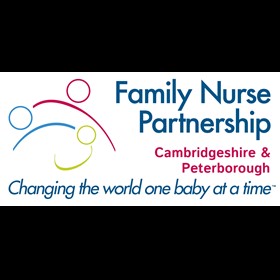What has it felt like to deliver a more personalised FNP programme?
Norma Wilby, Family Nurse, Cambridgeshire and Peterborough
What has it felt like to deliver a more personalised FNP programme?
Delivering a more personalised FNP has felt like a real endorsement of my own skills as a nurse. It’s given me a bit more confidence to see that I don’t have to fix everything – because we’re good at that in nursing! But rather to take a step back and let the client lead the way. It gives them the ability to say what they think will work for them and what they think they can achieve. It allows them to be honest and realistic with themselves, as well as with me, about where they’re heading and where they want to get to – both for them and for their child. That’s not always easy; it can be a difficult conversation for some clients. But this is what opens up the space for me to bring in my clinical expertise and the programme, connecting the hopes that a young parent has for themselves and their baby with the outcomes we know can give that child the best start in life.
This is not a new concept for FNP. We’ve always been client-focussed. The visual nature of the New Mum Star enhances this, however, and makes it feel a bit more concrete. It underlines the sense of an open and transparent partnership between client and nurse: the idea that I’m working with them, not simply delivering the programme to them. It is also action-orientated. It enables us to think together about what steps a client needs to take towards self-efficacy and to see clearly when she’s made change and achieved something for herself or her baby.
Using the New Mum Star
I have found the New Mum Star is a great way to build engagement in the programme early on because of its focus on the client’s goals and aspirations. It gives clients a clear sense that their voice and opinions matter, and that they have a role in helping to shape the work we do together. It has brought up really good conversations with some of my clients that I may never have got to without it. We can’t know what a client doesn’t tell us and they sometimes assume you know things, or they forget about something they’ve said a few months earlier – life goes on. The New Mum Star enables clients to see their progress as well, when we revisit it during the course of their time on the programme.
Severe social anxieties are a fairly common problem for the clients I see: they don’t want to go out, or they feel uncomfortable being out on their own. They don’t always see that getting out and about, enabling their infant to play with other children, has a connection to the development of the child’s social skills – things like taking turns, sharing, enjoying playful moments, or negotiating difficult emotions with their peers. All the things that help lay foundations for good social interactions and school readiness. Almost all clients want to do the best by their child. Being able to connect these important aspects of development with their own motivation to get off the sofa and out of the house, even if they don’t feel like it for themselves, can be incredibly powerful. The New Mum Star and its clear ‘Journey of Change’ towards self-efficacy really helps show clients, in a clear, visual way, what they are achieving when they do go for it. It’s their record of their own progress.
Implementing changes to practice
I feel incredibly positive about this change in the way we deliver FNP, although it was overwhelming at first. It was hard, initially, to let go of the programme as it was. We had to be ready to embrace greater flexibility – about the programme content, the frequency of visits, how long a client is enrolled in the programme. And there was a lot of groundwork to be done before we felt ready to start engaging clients and changing the way we were working with them.
We talked a lot in our team meetings to help surface our anxieties, to clarify things and to understand what the changes would mean for our day-to-day practice. Our supervisor was great in helping us understand the essence of a more personalised programme. Supervision has been a critical factor in helping us to feel confident and supported in making changes to practice. We also had to get the administrative infrastructure right to deliver the programme in a different way and we have great administrative support to do this, which made a huge difference. It meant we could work together to think about how we would organise our folders and set things up in a new way that supported the new delivery model.
It was daunting at first, but getting stuck in and seeing quite quickly how well most clients responded helped grow my confidence. It’s also been a valuable opportunity to reflect on my own practice too. The ability to dial down the frequency of visits, for example, has helped me reflect that I can sometimes find it hard to let go when I’ve built a relationship with a client. It has made me more conscious that my own anxiety might stand in the way of really acknowledging a client’s capacity and capability.
